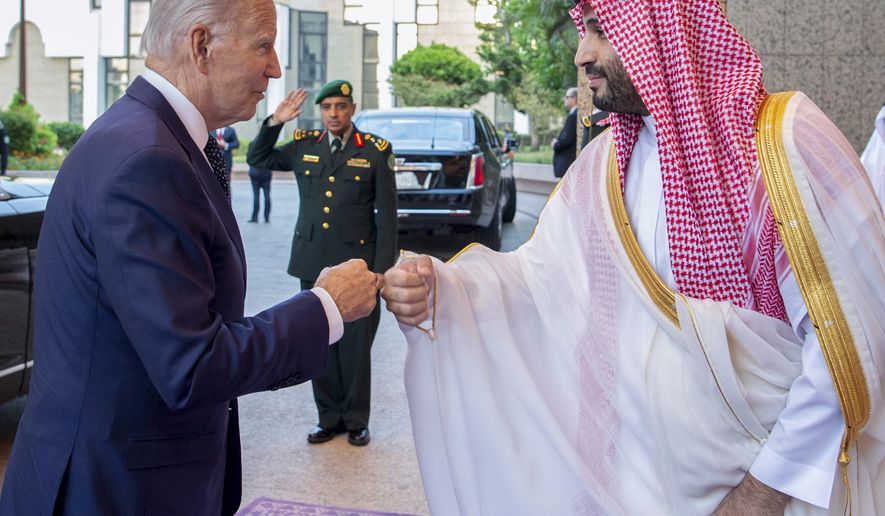Biden’s silent bid to end terrorism
ArticlesWhat government leaders do is often more important than what they say. Such is the case
with President Joe Biden’s visit to the Middle East.
The media has been full of speculation about what Mr. Biden plans to ask officials when he
arrives in Jeddah, Saudi Arabia, on July 15. Surely that will matter. But the mere fact that he
is making the trip speaks even louder.
When he steps into the diverse and often turbulent region, he will demonstrate that
governments and the people they serve need to respect each other, even if they have long
been in conflict.
If he selects his venues carefully, his mere presence will be seen as a plea for peaceful
coexistence, which could not come at a better time.
In recent years and with tragic frequency, misguided individuals have been attacking
innocent bystanders in the name of religions or ideologies that have roots in the region.
But as Mr. Biden has made clear, there is no place for extremism in today’s world. These
assaults are correctly labeled terrorism.
Terrorism does not come from only one direction. Extremists spring from many poisoned
wells.
Deranged individuals have attacked Muslims, Jews, and Hindus. Racial minorities have
targeted members of the local majority races and vice versa.
None of this is acceptable. Violent extremism for any reason must be condemned.
Attacks against followers of Islam have proliferated. Muslims and their houses of worship
have been terrorized in Washington State, Michigan, and Georgia in just the last two years.
In London, two Muslims were assaulted by 15 men outside the Sri Lankan Muslim Center
earlier this year.
Other religions have also felt the pain of terrorism. Who can ever forget the 11 Jews shot
to death in a Pittsburgh synagogue a few years ago?
These must be stopped, and they can be.
Hatred is learned. People are not hardwired to despise or harm one another. They start
out with an almost endless capacity to love until they are sent on a darker path.
One way to correct their course and avoid extremist behavior is open dialogue, especially
with young people. Academics, theologians, and, yes, politicians must teach that people
from diverse backgrounds can live together in harmony.
But that is not enough. Leaders must demonstrate with their actions, not just words, that
people who are different than themselves – ethnically, racially, or religiously – should not
be treated with less deference than anyone else.
More than a thousand Muslim leaders pledged to follow this route by signing the 2018
Charter of Makkah, which states: “Religious and cultural diversity never justifies conflict.
Humanity needs positive, civilized partnerships and effective interaction.”
In May, a conference of Muslim, Hindu, and Jewish leaders in Riyadh amplified that
message with a Declaration on the Common Human Values, which said in part: “We call on
religious institutions around the world to advance values that highlight forgiveness and
religious tolerance and … reject extremism that incites hatred and takes advantage of
religion to create crises and fuel conflicts.”
Mr. Biden should make such interreligious harmony a personal mission. He is known for
his common touch. His ability to empathize with the people he meets is a major source of
his popularity. During his trip to majority Muslim and Jewish countries this month, he can
show how well he gets along with everyone. He should embrace people with disparate
backgrounds for the cameras and, if possible, in front of live audiences of impressionable
youth.
They are the most important focus. If young people can see that America’s first citizen
accepts the humanity of whoever he encounters wherever he is in the world, then they can
do the same in their own lives. That is the best and most long-lasting type of education.
Written by Dr. Mohammad bin Abdulkarim Al-Issa Secretary General of the Muslim World League - - Friday, July 15, 2022
source: https://www.washingtontimes.com/news/2022/jul/15/bidens-silent-bid-end-terrorism/


